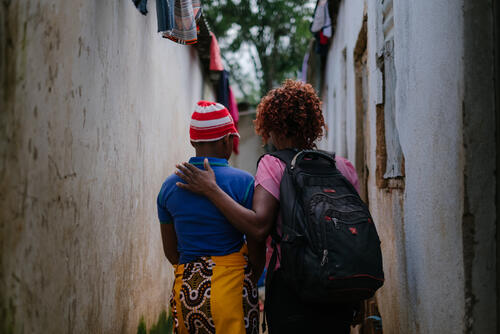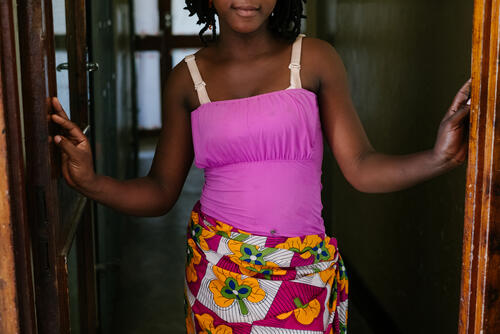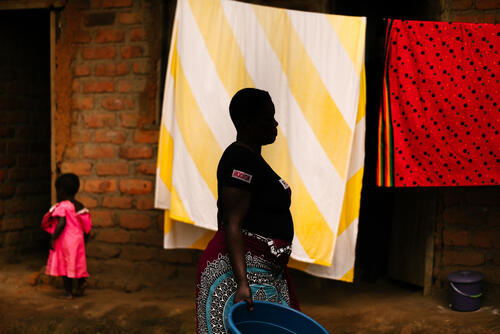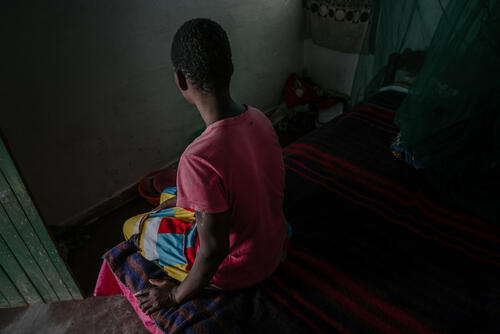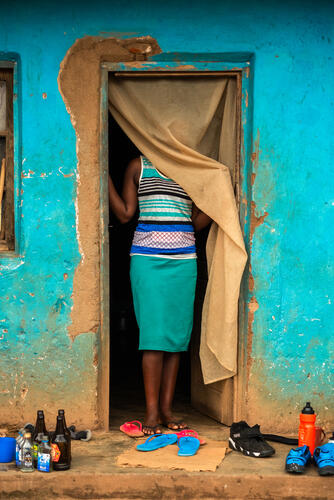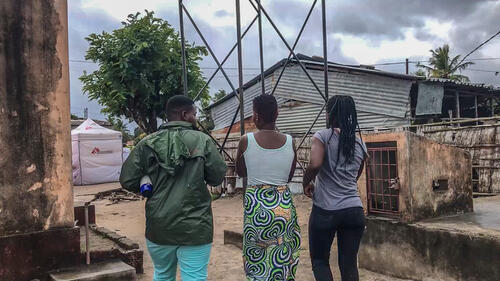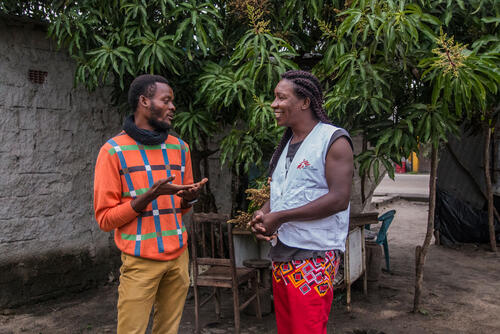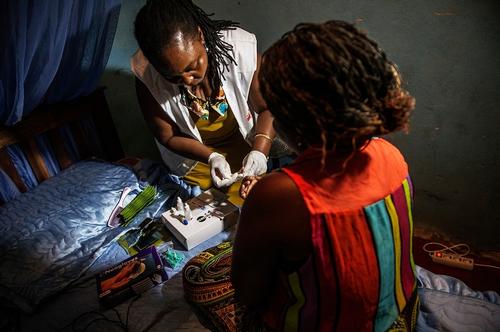An MSF programme in four districts in southern Malawi is helping thousands of women who earn their living from sex work to overcome barriers to health services, in part by training and employing sex workers as health workers in their communities.
Names have been changed, unless otherwise indicated.
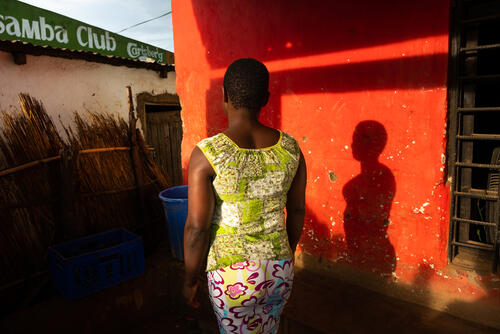
Bernadette lost both her parents when she was seven years old and was taken in by her grandparents, who would send her to school without food.
“I started having sex in exchange for things as my grandparents were not able to provide for me. This is how I got pregnant and dropped out of school,” says Bernadette, who moved from her village to Dedza at the end of 2018. “When I became a sex worker I didn’t know anything about condoms, or any other family planning methods. I had heard of HIV but never thought about contracting it myself,” she says.
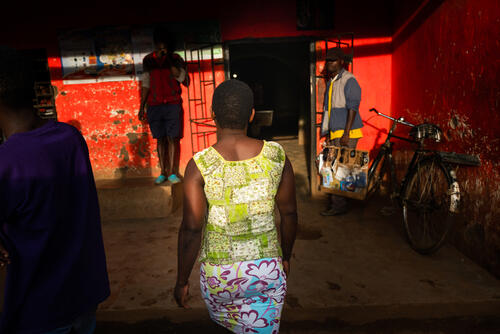
“This was the very first time I was given information on issues like HIV testing and sexual health,” says Bernadette after MSF community health worker Emily gave a health education session at the bar where she works and lives. “I saw it as an amazing opportunity that could help me to be healthy, no matter my circumstances.” Emily listened closely to what she had to say; because she too was a sex worker, she knew where Bernadette came from and what she was facing every day.
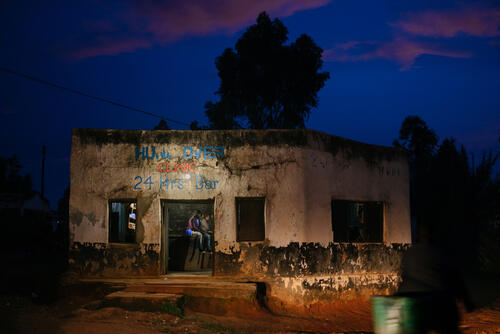
In Malawi, where poverty and unemployment remain high, many women like Bernadette turn to sex work – offering sexual services in exchange for payment of some sort – to support themselves and their families.
Malawi has one of the world’s highest rates of HIV, and while the country has made huge strides in fighting the epidemic, sex workers remain extremely exposed. With much lower access to health information and healthcare than others in the community, sex workers are over five times more likely to contract HIV, and face much higher risks of unwanted pregnancies and sexually transmitted infections (STIs).Sex workers are 5.4 times more at risk of HIV infection that their female counterparts in the general population. This estimate is based on the total prevalence among women aged 15-49 years in the general population in Malawi (National MDHS data, 2015-2016), compared with MSF project data (2018) on sex workers all ages.
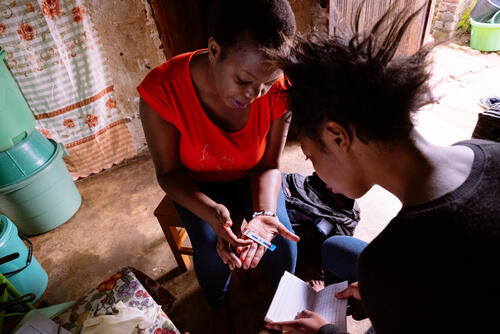
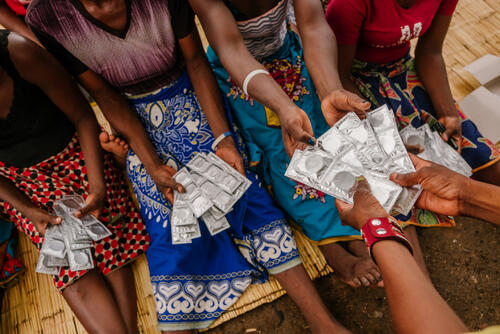
Sex workers report stigmatising attitudes and often violence in their daily lives – from police, clients, bar owners and even partners. While these risks are seen by many as part of the job, empowering sex workers with knowledge and prevention methods is key to protecting their health.
“In the past, most sex workers shied away from visiting health centres for fear of discrimination and stigma, especially if they were found to be HIV positive. If women needed post-exposure prophylaxis [treatment that prevents HIV if taken within 72 hours of exposure], they just didn’t go to the hospital because they knew they wouldn’t be helped,” said Alice Matambo (real name), an MSF community health worker in Dedza. "Sex workers need healthcare in their daily lives: if a condom bursts, if they have an STI, or need to be screened for cervical cancer.”
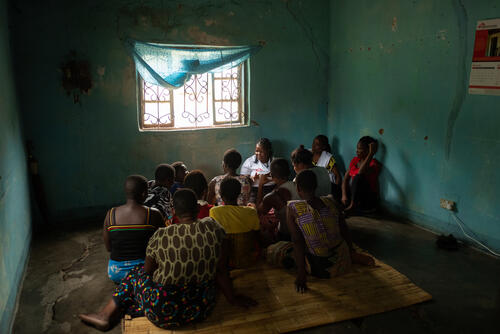
Recognising these gaps, MSF has been working with the Ministry of Health to provide services that meet the specific needs of sex workers. To connect with sex workers in the towns of Dedza, Mwanza, Zalewa and Nsanje, MSF has trained sex workers like Emily and Alice as community health workers, as they have themselves experienced the challenges and dangers associated with sex work. This shared experience enables them to discreetly link with other sex workers, understand their health situation and explain the medical services they need. Medical staff in the project have also been given sensitivity training to provide friendly services for sex workers.
“We approach sex workers gently and with respect, which makes them accept our approach, and look for medical help,” Emily says.
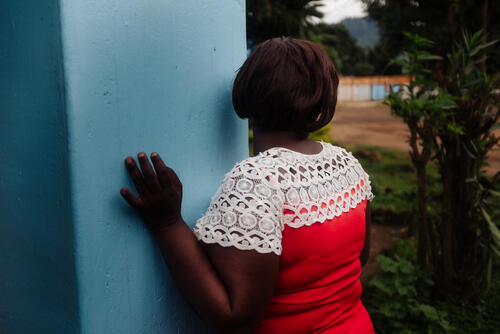
The community health workers also guide sex workers towards ‘one-stop’ clinics run by MSF in Ministry of Health facilities or in rented rooms in communities close to where sex workers live and work.
The ‘one-stop’ clinics are easy for sex workers to access discreetly and at convenient times. In a single visit, clinicians provide services like HIV testing, treatment and counselling; TB screening and referrals for care; and sexual and reproductive healthcare, including screening and treatment for STIs, access to contraception, cervical cancer screening, and treatment for sexual violence, which is either delivered on the spot or on referral.
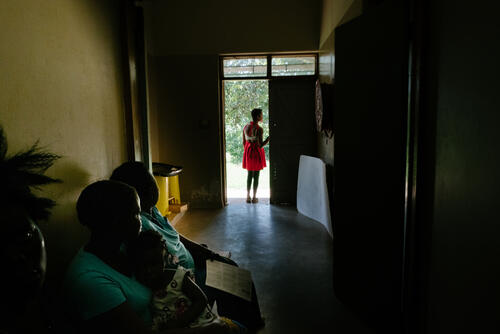
“With these services, I feel more empowered than before and I am able to negotiate protection with the clients. I know how to put a condom on properly, and we now have lubricant which prevents accidents,” says Bernadette.Lubricants play an essential part in safer sex. Adequate lubrication is essential to prevent excessive friction, which could cause the condom to tear resulting in HIV infection or pregnancy.
Many of the community health workers employed by MSF say they resorted to sex work after having children at a young age and being abandoned by their families or losing the support of their husbands to take care of their children. They are often shunned by their families and communities, facing abuse and hostility because of what they do.
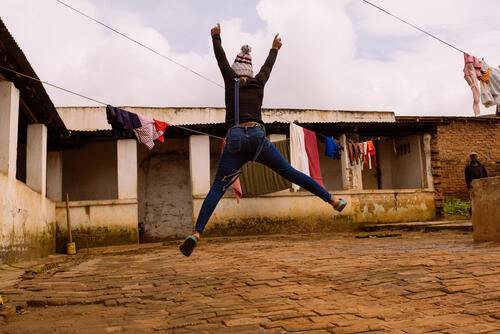
The programme has seen reduced levels of stigma against sex workers in their areas, as well as having a positive impact on their access to HIV testing and sexual healthcare.
“While some people used to look at us as animals, things have changed,” says Margret. “Today, the perception that people have towards sex workers is improved. Today, people understand that HIV affects everyone. And if we are to deal with HIV once and for all, the first step is to accept and recognise that, despite being different, we are all human beings.”
About MSF’s sex worker project in Malawi
Since 2014, MSF has been working with national health ministries and partners to increase healthcare for sex workers and men who have sex with men - people who often have a difficult time accessing healthcare - along main transport routes or busy centres of trade between Mozambique and Malawi through its ‘key populations’ project. In Malawi, the project focuses on reaching female sex workers in Mwanza, Dedza, Nsanje districts and in Zalewa in Neno district. All project sites combine outreach activities with a ‘one-stop’ clinic, located at Ministry of Health facilities or in the community, that address the specific needs of the sex workers like access to condoms and post-exposure prophylaxis, a drug which reduces the risk of HIV transmission. In all sites, MSF employs sex workers as trained community health workers to reach their peers through discreet networks and community engagement.
By the end of 2018, 5,171 sex workers were enrolled in MSF’s project in Malawi and 1,797 were actively seeking regular care. About half of the enrolled patients are HIV-positive, of which 85 per cent are virally suppressed, meaning that the women are able to take their treatment well, they are more likely to stay healthy and less likely to transmit the HIV virus in the event of unprotected sex.
Health services offered by MSF’s sex worker project
Community services: Community health workers conduct regular health education sessions in the community or in sex worker’s homes, on topics including safer sex, HIV and STI prevention, sexual and gender-based violence, hygiene, family planning and contraception, and TB and cervical cancer. They also provide sex workers with condoms, lubricant, emergency contraception methods, initial doses of post-exposure prophylaxis, pregnancy testing and screening for sexual violence. On appointment, trained counsellors visit sex workers at home to provide HIV testing services, counselling, TB and STI screenings and referrals.
‘One-stop’ clinics: Trained clinicians offer a comprehensive package of HIV and sexual and reproductive care using a sex worker-friendly approach: HIV testing and initiation, counselling, refills of antiretrovirals, HIV care and viral load monitoring, TB screening and referrals, STI testing and treatment, family planning, care for victims of sexual violence, viral load and cervical cancer screening and treatment. The ‘one-stop’ clinics aim to address each sex worker’s health needs in a single visit, using the opportunity to address all of her health needs in one go.



